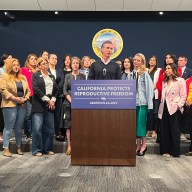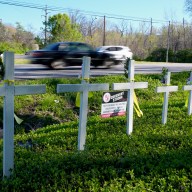
Sure, we love the wine and the camaraderie, but among the top pleasures of a good book club discussion is having a great book to rave about or ravage through lively debate. This fall’s lineup of top reading-group-ready reads brings us new novels by Elizabeth Gilbert, Jhumpa Lahiri and Stephen King, new paperback editions of award-winning fiction including Louise Erdrich’s “The Round House” and A.M. Homes’ “May We Be Forgiven,” plus Adam Johnson’s Pulitzer Prize-winning novel, “The Orphan Master’s Son.” Don’t forget all the stories of family drama, including Domenica Ruta’s addiction memoir, “With or Without You.” Here, we shortlist the top reads reads sure to get your book group’s conversation flowing, whether you’re eager to discuss family, faith, politics, parenthood, celebrity or coming-of-age.
The Cuckoo’s Calling:Fame and anonymity
This summer, readers were treated to an intriguing meta-mystery: The secret identity of the author of a crime thrillers called “The Cuckoo’s Calling” was revealed to be none other than J.K. Rowling, the mega-bestselling author of “Harry Potter” and “The Casual Vacancy.” The revelation sent readers and critics poring through the book to detect clues author “Robert Galbraith” left to his real identity, one of whom noted that the book — about the investigation of a fashion model’s death — takes on “the pressures of celebrity and fame (something both Ms. Rowling and Harry Potter know quite a bit about).” Reading groups will enjoy tracking the similarities between “Cuckoo” and Rowling’s previous books, while discussing whether we as a society take our obsession with celebrity too far.
More from Bookish: Greatest Book Club Books
Doctor Sleep:Ghosts of the past — and present
There’s nothing like a highly anticipated sequel to spark discussion: Does the second book live up to the first? Does it stand on its own, or is the author going back to the same well only to come up dry? When a sequel is 25 years in the making, our expectations may be heightened to fever pitch. So it is with “Doctor Sleep,” Stephen King’s much-anticipated followup to his 1977 horror classic, “The Shining.” Now in middle age and tormented by ghosts of the past, Danny Torrance has earned the nickname “Doctor Sleep” by using his second sight — “the shine” — to comfort the dying.
More from Bookish:Author Sylvia Day Picks Her Must-Reads for Fall 2013
The Signature of All Things:The search for enlightenment
Award-winning novelist, memoirist, journalist and biographer Elizabeth Gilbert is best known for her mega-bestseller — and book-club favorite — “Eat, Pray, Love.” This October, 12 years after her previous novel, “Stern Men,” Gilbert returns to fiction in “The Signature of All Things,” a historical novel spanning the 18th and 19th centuries from The Enlightenment to the Industrial Revolution. Alma Whittaker is a science-obsessed follower of Charles Darwin who falls in love with Ambrose Pike, a naturalist and painter who teaches Alma about the spiritual world — in all senses. Just as “Eat, Pray, Love” took Gilbert around the world in a search for meaning, “The Signature of All Things” takes the reader to London, Peru, Philadelphia, Tahiti, Amsterdam and more, following characters as they seek the inner workings of life.
More from Bookish: Top Young Adult Reads for Fall
Killing Kennedy:JFK’s death and legacy
With the 50th anniversary of John F. Kennedy’s assassination this November, there’s sure to be a slew of media coverage and myriad new books about what really happened in Dallas on Nov. 22, 1963, and the toll that it took on the nation afterward. Who better to spark debate than Bill O’Reilly, bestselling author and Fox News political pundit? O’Reilly’s book, “Killing Kennedy” recounts JFK’s last days, his death and its aftermath in a fast-paced, fact-filled narrative that’s sure to provide plenty of fuel for discussions about the legacy of JFK and Camelot.
More from Bookish:Must-Read Nonfiction for Fall 2013
The Lowland:Being your brother’s keeper
Another new fall novel sure to generate discussion is the next book from “The Namesake” and “Interpreter of Maladies” author Jhumpa Lahiri, out in September. “The Lowland” is about two brothers born in Calcutta, Subhash and Udayan, who are like two sides of the same coin — opposite, but bound together. Udayan is full of revolutionary fervor, determined to fight class inequality in India, while Subhash is content with quieter, scientific pursuits in America. Udayan’s passion leads him to dangerous places, and eventually Subhash must return to India to try and heal his broken family. Which brother will your book group identify with, and why?
The Round House:Coming of age in a violent world
The winner of the 2012 National Book Award, Louise Erdrich’s “The Round House” is narrated by Joe, a Native American public prosecutor who describes what happened when he was 13 and his mother, Geraldine, was raped by a white man near a sacred Ojibwe round house. Furious that the tribal courts cannot prosecute non-native people, Joe decides to take justice into his own hands, coming face-to-face with some confounding truths of adulthood and the trials of coming of age.
More from Bookish: Pulitzer Prize-Winning Fiction
The Orphan Master’s Son:Dystopia for adults
Adam Johnson’s book “The Orphan Master’s Son”–winner of the 2013 Pulitzer Prize for Fiction–is a dystopian novel for adults. Set in a North Korea that is both familiar and strange, the book has been compared to Dickens’ novels and to George Orwell’s dystopian classic, “1984.” The hero, Pak Jun Do, is a young orphan who makes his way through the police state of North Korea from the lowest echelons of society to the highest, along the way becoming a tae kwon do expert and professional kidnapper, a seaborne spy and an impersonator of a powerful government official, a sometime confidante to Kim Jong Il and an enemy of the state. Reading groups will have much to talk about, starting with the novel’s sometimes blurred relationship to truth and fiction, and whether we can believe the stories passed down to us by those in power.
With or Without You:Addiction and codependency
Like many memoirs of family dysfunction that have become perennial book club favorites — such as “The Glass Castle,” “The Liars’ Club” and “Running with Scissors” — Domenica Ruta’s “With or Without You” makes us laugh out loud at the antics of her unusual family, even as we shudder at the abuse she undergoes. Ruta’s mother, Kathi, was a shrewd businesswoman, tenacious single mom and proud loudmouth; at the same time, Kathi Ruta was also a heroin addict and a pill-pusher who got pre-teen Domenica hooked on Oxycontin and made her utterly dependent on her mother for emotional support. As she recounts in her memoir, Ruta was torn between wanting to stay close to home and yearning to break free of her mother’s spell, eventually deciding to “divorce” her mom for the sake of her own fraying sanity.
Where’d You Go, Bernadette:Mothers on the verge of nervous breakdown
If your reading group has a sharp sense of humor and is sick of making sure your entire life is eco-friendly, artisanal and locally sourced, Maria Semple’s novel, “Where’d You Go, Bernadette,” is a welcome antidote. Los Angeles-born Bernadette Fox is the reluctant matriarch of a Seattle family that includes her tech-geek husband and precocious daughter; she loves them, but she hates how relentlessly friendly her neighbors and fellow PTA members are. When Bernadette snaps and goes missing, it’s up to her daughter, Bee, to find her. The book is a compilation of Bee’s detective efforts, and reading groups are sure to enjoy discussing Semple’s kaleidoscopic storytelling and Bernadette’s anti–”helicopter parenting” style.
May We Be Forgiven:Suburban family dysfunction
A.M. Homes takes her story of a dysfunctional family in a decidedly darker direction. The winner of the 2013 Women’s Prize for Fiction, “May We Be Forgiven” follows two brothers with a lopsided sibling rivalry: Younger brother George is taller, smarter and arguably better looking than older Harry, with a successful career and a beautiful wife. But George’s marriage is less than happy, and, in a fit of rage, George attacks his wife and gets sent to a psych ward. Now it’s up to hapless Harry to look after George’s two stranded, adolescent kids and learn how to become a family man himself. Readers will enjoy digging into Homes’ trademark dark humor as well as issues of infidelity, family, Harry’s Nixon obsession and the perils of life in modern suburbia.
















